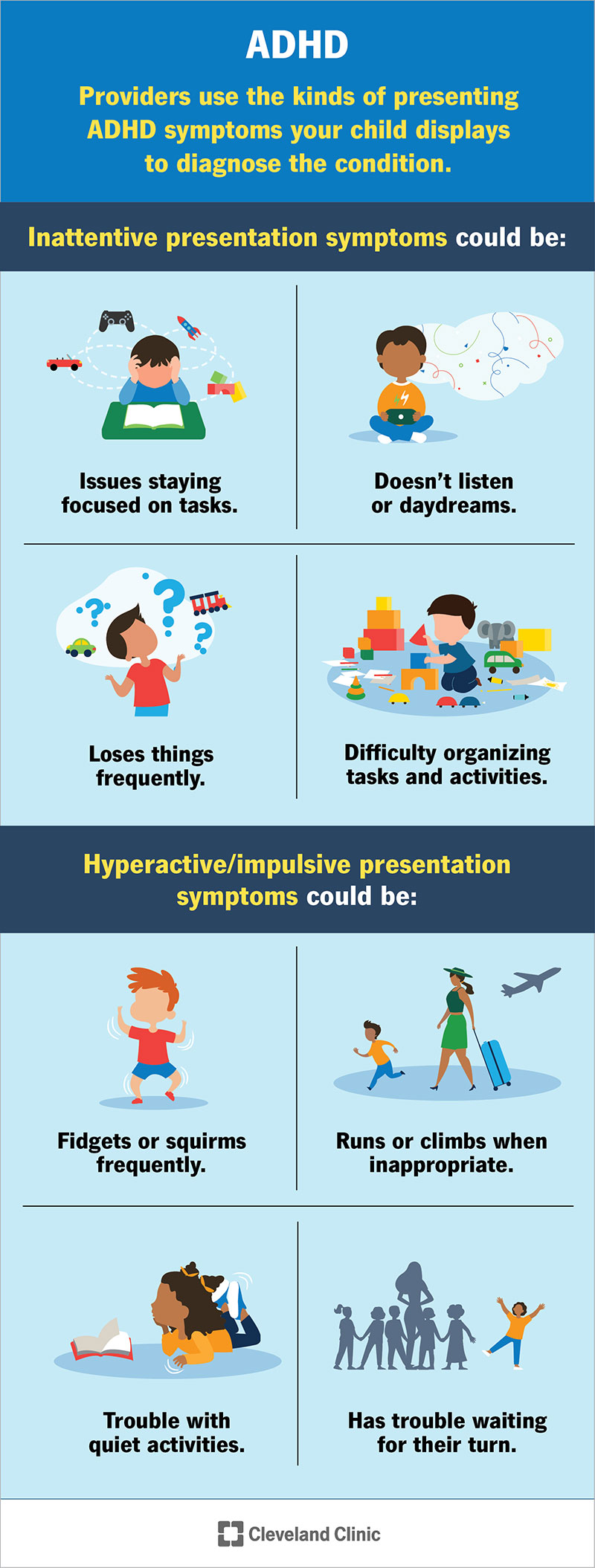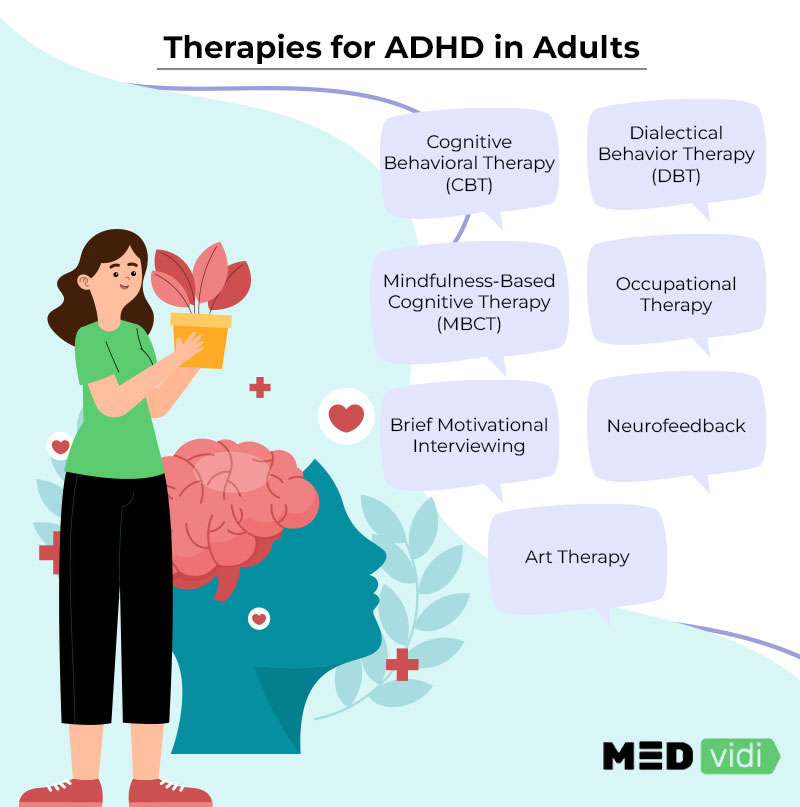Exploring Reliable ADHD Treatment Alternatives for All Ages
The complexities of Focus Deficit Hyperactivity Problem (ADHD) present one-of-a-kind difficulties across various age teams, requiring a detailed expedition of efficient therapy options. A combination of behavior therapies, medicinal interventions, and way of life alterations has revealed promise in attending to the varied demands of people with ADHD. The efficacy of these approaches can vary considerably based on individual conditions, raising crucial concerns regarding customized approaches. As we check out the spectrum of treatment modalities available, it ends up being vital to think about not only their instant impacts but also their long-term implications for individuals and family members.
Recognizing ADHD and Its Effect
Attention-Deficit/Hyperactivity Condition (ADHD) is a neurodevelopmental condition identified by relentless patterns of inattention, hyperactivity, and impulsivity that can considerably affect different elements of an individual's life. It commonly materializes in childhood, although signs can persist right into the adult years. The core symptoms of ADHD can interfere with educational efficiency, hinder social communications, and complicate job-related endeavors.
Individuals with ADHD commonly battle with keeping concentrate on tasks, arranging activities, and adhering to through on directions, which can bring about scholastic underachievement (Depression Treatment). In social contexts, impulsivity may lead to troubles in developing and maintaining relationships, as people might disrupt conversations or make hasty choices without thinking about effects
In addition, ADHD can co-occur with other mental health and wellness problems, such as anxiety and clinical depression, further complicating diagnosis and therapy. The irregularity in signs and symptom presentation implies that ADHD can impact people differently, necessitating an individualized strategy to management. Understanding ADHD's diverse effect is vital for creating reliable strategies that support individuals in navigating everyday obstacles and attaining their possibility. Comprehensive understanding of ADHD's nature and ramifications prepares for discovering ideal therapy choices tailored to each person's demands.
Behavioral Therapies for ADHD
Various behavioral treatments have actually been established to effectively address the obstacles connected with ADHD, concentrating on modifying details actions and cultivating necessary skills. Amongst the most identified techniques are cognitive-behavioral therapy (CBT), moms and dad training, and social skills training.
CBT aids people recognize and alter negative idea patterns and habits, promoting a much more favorable outlook and boosted self-regulation. This treatment frequently consists of useful approaches for handling impulsivity and enhancing organization. Parent training programs equip caregivers by equipping them with methods to strengthen positive actions and set regular limits, which can be specifically advantageous for youngsters with ADHD.
Social skills training is one more essential part, teaching people with ADHD how to engage properly with peers - Depression Treatment. This method commonly entails role-playing and comments to boost communication, teamwork, and problem resolution skills
Integrating these behavior treatments right into a comprehensive treatment strategy can significantly improve working and lifestyle for people with ADHD. Ultimately, the efficiency of these treatments relies on customized methods that think about the special demands of everyone, thereby promoting durability and flexibility in every day life.
Medication Options Available
For numerous individuals with ADHD, medication can play a significant role in handling symptoms and enhancing overall functioning. Both primary categories of medicines recommended for ADHD are energizers and non-stimulants.
Stimulants, such as methylphenidate and amphetamine-based drugs, are one of the most generally made use of therapies. These medications work by boosting the levels of natural chemicals, especially dopamine and norepinephrine, in the mind, which aids enhance interest and lower impulsivity and attention deficit disorder. They usually generate quick results, making them a favored option for several people.

It is essential for medical care providers to conduct an extensive assessment to identify the most proper medicine based on private needs, medical history, and possible side impacts. Routine follow-up and tracking are also critical to guarantee the efficiency of the picked treatment and to make any required modifications.
Lifestyle Changes to Consider
Handling ADHD effectively extends past medicine, as lifestyle adjustments can dramatically improve general well-being and symptom control. Including organized regimens is important; consistent timetables assist individuals with ADHD manage their time effectively and lower feelings of bewilder.
Routine physical task is an additional essential part. Exercise not just cesd depression assists to improve focus however also enhances mood and reduces stress and anxiety levels. Tasks such as yoga exercise or team sporting activities can be especially beneficial, advertising both fitness and social interaction.
Nutrition likewise plays a critical duty. Depression Treatment. A balanced diet regimen rich in omega-3 fats, entire grains, and lean proteins can add to improved emphasis and cognitive function. Restricting sugar and processed foods is a good idea, as these can exacerbate hyperactivity and impulsivity
Sleep health is essential for taking care of ADHD symptoms. Establishing a routine rest routine and producing a relaxed environment can improve rest quality, resulting in much better interest and psychological policy.
Alternate and All Natural Approaches
Alternate and alternative strategies to ADHD treatment provide a diverse variety of choices that enhance typical methods. These techniques commonly concentrate on way of living alterations, visite site nutritional treatments, and therapeutic methods that aim to improve general well-being while dealing with ADHD symptoms.

Mindfulness and behavior modifications are also acquiring traction as holistic treatments. Practices such as yoga exercise, reflection, and cognitive-behavioral therapy can grow self-regulation and improve attention. These methods support emotional resilience, which is particularly helpful for people with ADHD.
Organic supplements, such as ginkgo biloba and ginseng, are sometimes explored; however, it is essential to speak with health care professionals before incorporating these into treatment strategies. While choice and all natural approaches can offer useful support, they should preferably be made use of combined with evidence-based treatments to achieve optimum outcomes for handling ADHD across any ages.
Conclusion
In summary, efficient ADHD treatment requires a comprehensive technique that includes behavioral treatments, medication, way of living modifications, and alternative methods. This complex strategy underscores the value of individualized care in resolving the diverse requirements of individuals with ADHD throughout all age teams.